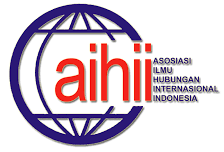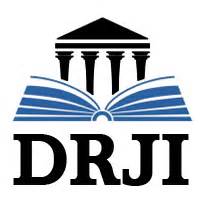Kerja Sama Selatan-Selatan dan Triangular dalam Implementasi Sustainable Development Goals 2030 oleh ASEAN (2015-2019)
Abstrak
Kerjasama Selatan-Selatan dan Triangular merupakan kerjasama dalam bidang pembangunan yang melibatkan negara-negara Selatan dengan tujuan mencapai kondisi yang independen, dengan melibatkan tiga pihak; dua negara Selatan dan pihak ketiga, yaitu negara maju atau organisasi multilateral sebagai penyedia sumber daya maupun pengetahuan. Kerjasama ini dianggap dapat mengoptimalisasi agenda pembangunan dunia salah satunya Sustainable Development Goals. Salah satu aktor aktif dalam usaha pencapaian SDGs adalah ASEAN yang beranggotakan negara-negara Selatan. Namun, perjalanan ASEAN akan SDGs dinilai lambat pada beberapa poin. Artikel ini bertujuan untuk mengidentifikasi bentuk Kerjasama Selatan-Selatan dan Triangular dalam Implementasi SDGs oleh ASEAN, dengan batasan waktu 2015-2019. Tinjauan pustaka yang digunakan merupakan konsep organisasi internasional, menempatkan ASEAN sebagai aktor dan menganalisis dengan analisa institusi formal menurut buku International Organizations oleh Clive Archer (2001). Metode penelitian yang digunakan disini merupakan kualitatif deskriptif yang berpedoman pada pemaparan John W. Creswell dalam Research Design: Qualitative, Quantitative, and Mixed Methods Approach (2010). Hasil yang ditemukan merupakan bahwa Kerjasama Selatan-Selatan dan Triangular yang dilakukan oleh ASEAN sebagian besar masih berada dalam tataran ideologis politik, yaitu nilai dan prinsip solidaritas antar negara Selatan, dan belum seluruhnya telah menjadi kerjasama teknis. Perlu adanya pelaksanaan yang lebih konkret secara teknis oleh ASEAN.
Kata Kunci
Teks Lengkap:
PDFReferensi
Acharya, A. (2016). Studying the Bandung conference from a Global IR perspective. Australian Journal of International Affairs.
Apresian, S. R. (2016). Kerja sama Selatan-Selatan dan Triangular Sebagai Instrumen Peningkatan Peran Indonesia di Tingkat Global . Jurnal Ilmiah Hubungan Internasional Vol. XII/02, 189-203.
Archer, C. (2001). International Organizations.
ASEAN Secretariat, UNOSSC, Ministry of Foreign Affairs of the Kingdom of Thailand. (2018). Mapping South-South Cooperation in ASEAN . Ministry of Foreign Affairs of the Kingdom of Thailand.Axelrod, R. &. (1985). Achieving Cooperation under Anarchy: Strategies and Institutions. World Politics, 38(1), 226-254.
Assie-Lumumba, N. T. (2015). Behind and beyond Bandung: historical and forward-looking reflections on south-south cooperatoin . Bandung: Journal of the Global South.
Barkin, J. S. (2013). International Organizations: Theories and Institutions.
Cabana, S. L. (2014). Chronology and History of South-South Cooperation . IBERO-American Programme for The Strengthening of South-South Cooperation.
Development Assistance Committee. (2016). Triangular Cooperation - Findings from a 2015 Survey. OECD.
Dirlik, A. (2015). The Bandung legacy and the People's Republic of China in the perspective of global modernity. Inter-Asia Cultural Studies , Vol. 16, No. 4, 615-630.
Engel, S. (2019). South-South Cooperation in Southeast Asia: From Bandung and Solidarity to Norms and Rivalry. Journal of Current Southeast Asian Affairs, 1-25.
Gray, K., & Gills, B. K. (2016). South–South cooperation and the rise of the Global South. Third World Quarterly, 557-574.
Herbert, A. L. (1996). Cooperation in International Relations: A Comparison of Keohane, Haas and Franck. Berkeley Journal of International Law.
Lay, C. (2016). THE BANDUNG SPIRIT: Nation State and Democracy. Journal of Indonesian Social Sciences and Humanities, Volume 6, Issue 1, 1-10.
Nurhasdy, R., Nurika, R. R., & Yekti, S. N. (2016). The Relevance of Bandung Spirit in the Contemporary Global Trade Order. Jurnal Sospol, Vol 2 No 1, 137-155.
Research and Information System for Developing Countries. (2020). Chapter 2. South-South Cooperation: A Historical Perspective . Retrieved from RIS: Research and Information System for Developing Countries: http://ris.org.in/sites/default/files/Chapter%202_0.pdf
Parker, C. F., & Karlsson, C. (2013). Leadership and International Cooperation.
Safonov, G. V., & Piskulova, N. A. (2018). Sustainable development and international cooperation.
The United Nations Economic and Social Commission for Asia and the Pacific (UNESCAP). (2018). South-South Cooperation in Asia and the Pacific – A brief overview. UNESCAP.
UNESCAP, Ministry of Foreign Affairs of the Kingdom of Thailand and the Secretariat of the Association of Southeast Asian Nations (ASEAN). (2017). Complementarities between the ASEAN Community Vision 2025 and the United Nations 2030 Agenda for Sustainable Development: A Framework for Action. Thailand.
UNESCAP. (2020). Regional Consultation on South-South Cooperation in Asia and the Pacific. Retrieved from UNESCAP: https://www.unescap.org/events/regional-south-south-cooperation
United Nations Office for South-South Cooperation (UNOSSC). (2018). Good Practices in South-South and Triangular Cooperation for Sustainable Development - Volume 1&2.
United Nations Office for South-South Cooperation (UNOSSC). (2019). South-South in Action: South-South and Triangular Cooperation on Peace and Development.
DOI: https://doi.org/10.24198/padjir.v2i2.26067
Padjadjaran Journal of International Relations Terindeks Di:







21.png)










